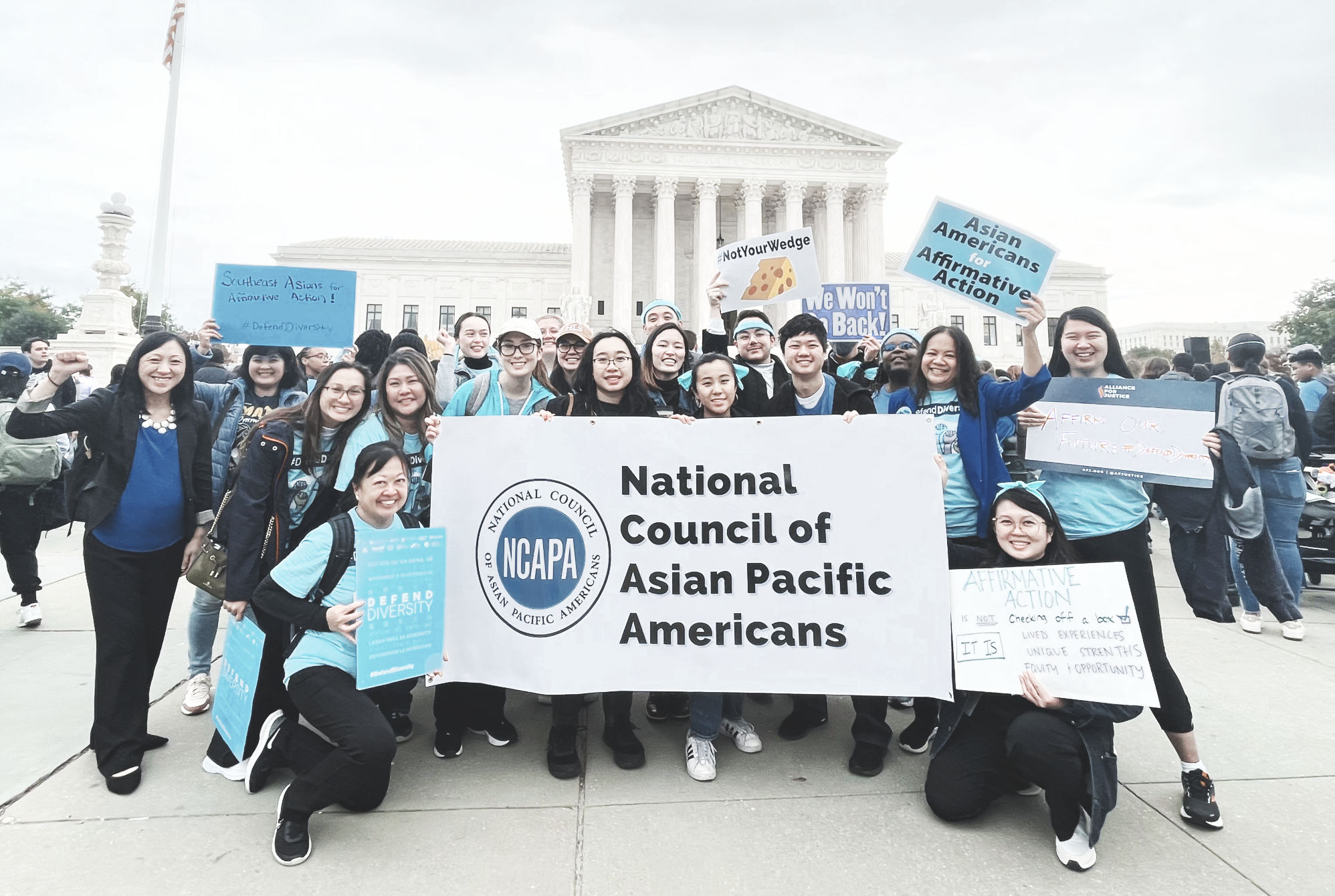
JACL National’s Cheyenne Cheng and Fellows Bridget Keaveney and Michael Tanaka were among those who showed their support along with NCAPA during the Oct. 31 Affirmative Action rally. (Photo: Courtesy of Cheyenne Cheng/JACL)
The Leadership Conference on Civil and Human Rights, in collaboration with the African Policy Forum, Asian Americans Advancing Justice, Lawyers’ Committee for Civil Rights Under Law and Legal Defense Fund, hosted a rally in support of Affirmative Action on the steps of the U.S. Supreme Court on Oct. 31.
On that date, the Supreme Court began to hear oral arguments for two cases concerning the consideration of race as one factor in college admissions at Harvard University and the University of North Carolina.
Among those participating in the rally were JACL National Youth and Programs Manager Cheyenne Cheng and Norman Y. Mineta Policy Fellow Bridget Keaveney and Daniel K. Inouye Policy Fellow Michael Tanaka.
Speakers at the rally included Maya Wiley, president and CEO of the Leadership Conference Education Fund, and John C. Yang, president and executive director of Asian Americans Advancing Justice.
“Affirmative action helps expand higher education opportunities to those who have been historically denied by ensuring that the many talents and experiences of students of color aren’t overlooked in admissions processes that tend to be biased against them. The time is now to show our support for diversity in higher education and stand against those who seek to divide us,” said the Leadership Conference in a statement about the rally.
Said JACL’s Keaveney: “Race-based affirmative action provides historically exclusive institutions the opportunity to right past wrongs. By acknowledging the prevalence of racism in our country, institutions such as colleges and universities can practice and consider preventative steps to eliminate racial discrimination. The belief that race-conscious admissions hurt rather than benefit Asian Americans is false.
“It is clear that Asian Americans continue to be used as political pawns to drive a wedge amongst communities of color,” she continued. “It is important, now more than ever, that as Asian Americans, we come together and debunk harmful myths that pit communities of color against each other. In order to foster more significant equity on campuses, inclusion efforts, such as affirmative action, must be defended.”
Added JACL’s Tanaka: “If the Supreme Court dismantles Affirmative Action in college decisions, I worry about the millions of youth that won’t get their chance to tell their stories,” he continued. “I worry about those that have so much more to bring to the world than perfect grades or a good SAT score. Diversity can’t and shouldn’t be ‘quantified.’ We are who we are by virtue of how we are perceived and treated, historically and systematically. It cannot be understated, therefore, how essential race and ethnicity is toward our ability to express who we are holistically, truthfully and equitably.”
The Supreme Court spent more than five hours listening to arguments in the two cases, which have major implications for the college admissions process as to whether race can be used as one factor in determining a student’s admissions eligibility.
The court’s decision could rollback a 40-year legacy of affirmative action. A ruling is due out next year.



